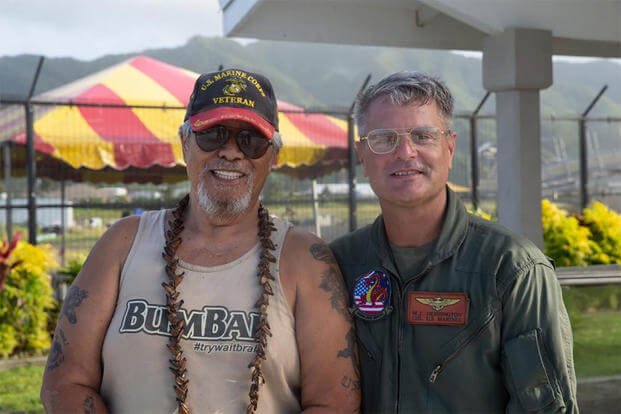While veterans may not always be easily recognizable, there are a few respectful ways to spot and connect with veterans in your community so that you may honor and thank them.
While there are many jokes about veteran stereotypes and things veterans tend to do that make them easy to identify, finding and getting to know veterans can also be a serious matter if you're looking to support and thank the community.
Here are a few tips for finding veterans near you.
How to Spot a Veteran
Check with local veterans organizations. If you're looking to reach out to groups of veterans or learn the best way to help those who live near you, your local veteran organizations are a great place to start. The Veterans of Foreign War (VFW) and American Legion groups often have their own halls or buildings that host veteran-focused events or volunteer opportunities. Wounded Warrior Project and Team Red, White & Blue are two organizations often used by younger veterans that might have chapters near you. Visiting or contacting these organizations is a great place to start for those looking to meet or help local veterans.
Related: Celebrate Veterans Day
Watch for military insignia. Military veterans are often very proud of their service and wear hats, shirts or jackets that broadcast their affiliation with specific military branches or units. Navy veterans, for example, often wear ball caps that say which ship or boat they served on. If you're hoping to spot a veteran so that you can thank them for their service, keeping your eyes open for related clothing is a great way to start.
Look for military vehicle tags and stickers. Many states give out special license tags to veterans, while some states have special tags for disabled and non-disabled veterans. Some veterans also put military insignia bumper stickers on their cars. Both license plates and stickers are a way to see whether the person you're parked near or driving behind is a veteran.
Related: State Veterans Benefits
How to Spot a Fake Veteran
When people fake veteran status or pretend to have certain types of military service, this is known as "stolen valor." It's a big topic among true military veterans. It's highly advisable not to accuse someone of stolen valor unless you're absolutely certain. Unless you served and are intimately familiar with military ranks and insignia, it is likely difficult to know whether the person you have met is a fake veteran.
If you meet someone in your community who says they are a veteran, it is usually best to assume they are telling the truth.
However, it's also important to be aware that some people do use a fake veteran status to scam others out of money or resources. This is especially true when it comes to military romance scams.
How can you spot a military romance scammer? Here are a few common military romance scam claims:
- They say they are being charged money to go on leave.
- They say they need someone to request leave for them.
- They say there is a fee for getting married, going on leave or communicating.
- They say they need permission to get married.
- They say they have to pay for early retirement.
- They say they need someone to pay their medical expenses.
- They say they need money to feed or house their military troops.
Learn more about ways to spot a military romance scam.
What to Say to a Veteran
Many veterans are tremendously proud of their military service. Simply asking a veteran about their military service is a great way to offer support. Hearing these stories of service can also help you as a non-veteran understand how to better support veterans in your communities.
Here are some starter questions.
What to Ask a Veteran:
- How long were you in the military?
- What military service were you in?
- Where were you stationed?
- Why did you choose to serve?
- How did military service change your life?
What Not to Say to a Veteran:
While asking a veteran about their military service is a good way to honor them and create connection, there are some questions that are seen as taboo. Some veterans may not want to talk about their combat experience, and it's important to be respectful.
For example, stay away from:
- Did you ever kill someone in the military?
- Did anyone you know die in the military?
Related: Understanding Military Time
Want to Know More About the Military?
Be sure to get the latest news about the U.S. military, as well as critical info about how to join and all the benefits of service. Subscribe to Military.com and receive customized updates delivered straight to your inbox.












